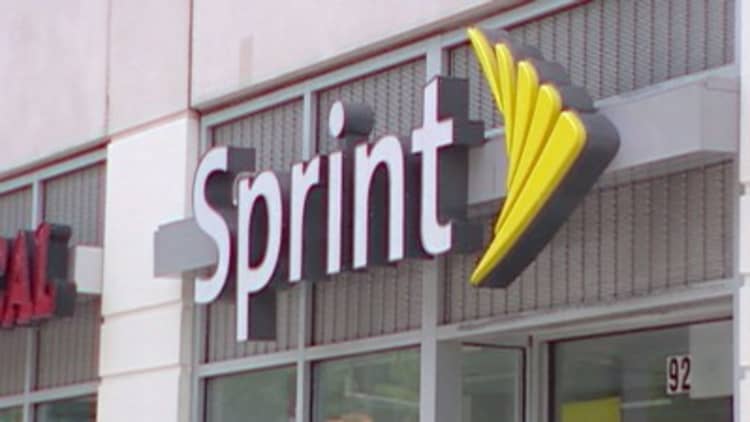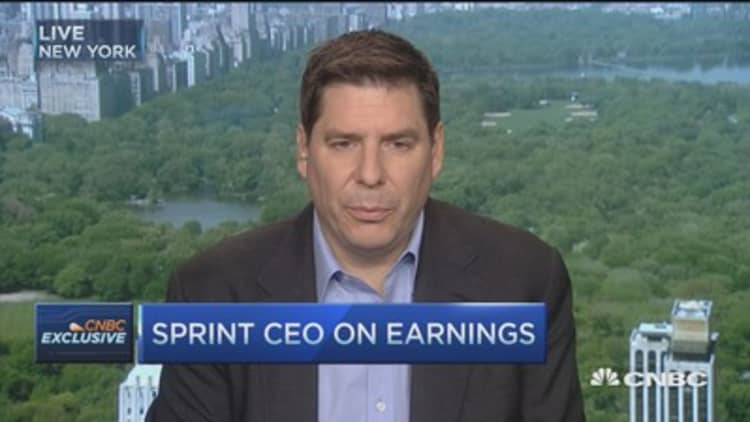
Sprint's new ad campaign features soccer star David Beckham taking some funny shots at competitors, but not all his volleys hit the mark.
In the ads, Beckham goes to Sprint's rival stores and finds their pricing confusing, with separate prices for device payments and service as well as overage fees and other costs. Then, he goes to the Sprint store and all is made simple and easy. Plus, because it's a commercial, he gets splendid customer service and he doesn't even have to wait in line.
Fantasies aside, the real issue here is whether Sprint is actually helping clear things up. An argument can be made that T-Mobile and other carriers are actually being more clear by separating out the two key components of their cellphone bills: The charge for monthly service and the cost that is really going toward paying for a phone.
More from Re/code
Samsung plans more Tizen phones this year
Apple watch continues its global rollout
T-Mobile's new jump program lets customers replace phones up to three times a year
Sprint rivals have still been playing down the device costs in their marketing, focusing largely on the service portion of the bill and masking the full monthly costs. Plus, AT&T and Verizon still have overage fees if you go over your monthly data cap.
"We want to encourage everyone to compare the full cost of wireless whenever they are shopping," says Kevin Crull, Sprint's newly minted marketing chief.
It's newest plans, dubbed "All-In," cover both device and unlimited talk, text and data for a single price. (For a basic iPhone 6 or Galaxy S6, the All-In plans start at $80 per month.)

But, even Sprint's All-In plan isn't quite all-in. Customers are not getting the full picture. While Sprint makes much of the fact it clearly spells out the two main costs — phone lease and monthly service — its All-In plans don't include taxes and fees, which often add 10 percent or more to a monthly bill.
Most other carriers do the same, but Sprint missed an opportunity to really go all-in if it wanted.
AT&T's Cricket prepaid brand, for example, includes taxes and fees in many of their monthly rates.
There's a second issue with Sprint's All-In plans. They aren't necessarily a bargain. For iPhone buyers, the rate actually represents a $10-per-month increase over a prior plan, known as iPhone for Life.
Crull acknowledges the hike, but says the move allows the company to have similar pricing for the two flagship smartphones — the Samsung Galaxy S6 and Apple's iPhone. Plus, he says, Sprint remains far below T-Mobile when combining either phone with an unlimited data plan, while AT&T and Verizon no longer offer such plans.
Finally, there's the issue that Sprint continues to flog unlimited data in all its major smartphone plans, even as the company acknowledges that it will eventually need to hike prices or eliminate such plans altogether.
"There's a segment of the consumer base that really values unlimited," Crull said. "I think that need will be met. The pricing will probably move around a little bit."
Regulators are more closely scrutinizing wireless carrier deceptive practices including promotions that promised unlimited data. The FCC earlier this month said it would fine AT&T $100 million for its handling of unlimited data plans.
—By Ina Fried, Re/code.net.
CNBC's parent NBCUniversal is an investor in Re/code's parent Revere Digital, and the companies have a content-sharing arrangement.

